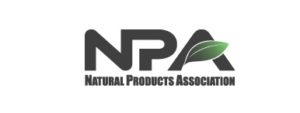It seems simple: “Clean label” stands for natural ingredients in a product with no artificial ingredients and chemicals.
However, California-based personal care company derma e, said it recognized that a standard definition of “natural” does not exist. Therefore, the company’s chief formulator, Linda Miles, DOM, developed a comprehensive set of stringent criteria to guide derma e’s formula development. “At the very basic level, each derma e formula must be 100 percent vegan, cruelty-free, and free from questionable agents such as parabens, petrolatum, phthalates, GMOs (genetically modified organisms), artificial dyes, triclosan, mineral oil, SLSs (sodium lauryl sulfate), gluten, PABA (paraaminobenzoic acid), polyethylene beads, talc, methylisothiazolinone, and many others,” explained Jennifer Norman, the company’s vice president of marketing.
“We do not define ‘clean labeling’ as being ‘100 percent natural’ for the simple fact that 100 percent natural skincare formulas are far too easily contaminated with harmful microbes and bacteria,” Norman said. “We are very proud that we have been able to uphold such a strict natural standard and have never had a product recall due to micro-contamination in our 30-year history.”
John Shaw, the Natural Products Association’s (NPA) former executive director and CEO agreed that defining a “clean label” is a somewhat difficult question to answer, as there isn’t an official definition. However, to NPA, a “clean label” in personal care products is a product that does contains all-natural ingredients. The NPA’s Natural Standard and Certification for Personal Care Products, offers a set of guidelines that dictate whether a product can be deemed truly “natural.”
Other manufacturers offer their interpretation. Mandy Mortensen, Larenim brand manager with Utah-based Nutraceutical Corporation, said the Larenim brand launched into the natural products industry in 2004 with a line of mineral makeup. “A clean label in personal care products is one that uses only ‘good’ ingredients while leaving out the ‘bad,’ she said. Larenim products do not include gluten, nano-size particles, FD&C dyes, parabens, DEA/TEA-synthetic stabilizers, quats, bismuth oxychloride, formaldehyde donors, carbomer, talc, phthalates, 1,4 dioxanes, chemical sunscreens, chemical preservatives, polymers, petro chemicals, sodium laureth sulfate (SLES), acrylates, glycols, SLS, PVP (polyvinylpyrrolidone) or algae. “We focus on using only the best ingredients in all of our products,” Mortensen noted.
New York-based Home Health has been offering paraben- and gluten-free personal care products long before it was on the radar, noted Dorie Greenblatt, the company’s director of marketing. What the company defines as “clean” formulations are products made with plant-based ingredients and cleansers, vegan-friendly, non-GMO, gluten-free; and free of known irritants such as soap, fragrance, parabens, gluten, phthalates, petroleum colors, DEA (diethanolamine) and SLS.
Consumer Perception
According to Shaw, American consumers are educating themselves and know what ingredients to look for when shopping for personal care. “For example, fragrance-free doesn’t mean there isn’t anything in the product to make it smell good,” he said, “It simply means that there isn’t a ‘fragrance,’ but it could have essentials oils that are aromatic. The consumer with sensitive skin can have a reaction to some essential oils that are used as an aromatic and not realize it because they thought they were purchasing something that didn’t have any irritating ingredients from a fragrance.”
The NPA Natural Standard only allows natural fragrances that are not preserved with parabens, phthalates, or formaldehyde-donating preservatives, and do not contain synthetic ingredients such as ‘absolutes,’ ‘concretes,’ or others that require the use of petrochemical solvents for extraction.
Manufacturers agreed that consumers are looking for natural ingredients. “They prefer labels with ingredient names they are able to pronounce,” Mortensen said. “Many times they’ll assume that if they can’t pronounce it, then it must be bad. This may or may not be the case.” Some key ingredients that are being shunned by consumers are parabens and phthalates, she noted.
“The interpretation of ‘clean’ by consumers is perhaps even more varied than the number of natural claims being made by brands,” added Norman. “Highly involved consumers do their research, read every ingredient label and make their own personal decision about products based on the ingredients they deem acceptable or unacceptable. Less savvy consumers take the easy route and look for claims such as ‘all natural,’ ‘organic,’ ‘fragrance-free’ or ‘paraben-free.’”
Norman pointed to Mintel’s September 2013 Natural and Organic Personal Care Consumer U.S. Report, which stated that “organic” claims Resonate most prominently with natural shoppers and generate the most positive response in terms of being perceived as natural. Other powerful natural claims include “uses plantbased ingredients,” “doesn’t use preservatives,” “contains at least 75 percent natural ingredients,” “contains botanical ingredients,” and “free from certain chemicals.”
State of the Market According to market research, there is growth in HBA, and the universal desire for safer, healthier, less toxic products coupled with exciting natural product innovation are the key drivers of that market growth.
• Based on 2013 Market Overview, NFM June 2013: personal care (9.8 percent) growth was outpacing supplement growth (7.5 percent)/overall industry growth (9.7 percent), skincare was driving 67 percent of all personal care volume.
• Based on SPINS data for 52 weeks ending June 8, 2013: biggest opportunity In skincare was sensitive skin—while the overall skincare category was growing 9. 7 percent, sensitive skin is growing even faster at 13 percent.
• Based on Miranda A. Farage, Alexandra Katsaro, Howard I. Maibach (29 June 2006), “Sensory, clinical and physiological factors in sensitive skin: a review,” more than 50 percent, or more than one out of two women say they have sensitive skin.
• The natural and organic personal care market consists of skin care, cosmetics, oral hygiene, bath and soap, deodorants, hair care and fragrances. According to the 2014 NEXT Natural Products Industry Forecast, the natural and organic personal care market achieved $9.6 billion in 2012, up 9.8 percent from 2011. Projections place the market at $15 billion by 2015.
Trends
A major trend within personal care is to provide credible, transparent proof of efficacy. “Brands must not only convince consumers that their natural products are safer and healthier than general market products, they must also prove that they work just as well, if not better,” said Norman. She pointed out that derma e is leading the charge by conducting a series of consumer and clinical tests against its key formulas. These tests may include photo-analytical imaging, expert grading, dermatologist reviews and self-perception surveys. “We believe with this proof of performance, we will be able to combat existing skepticism and improve relative strength for our brand.”
Another key trend is that consumers are making purchasing decisions that align with their values. “At derma e, our core promise is to deliver healthy results through an unwavering commitment to healthy skin, a healthy environment and a healthy world. Healthy skin is achieved through safe, effective, vitamin- rich formulas. A healthy environment is achieved through comprehensive recycling programs, use of recyclable components in all products sold and offsetting 100 percent of operations with clean, renewable wind energy.” Derma e’s giving back programs including the Paraguay Project, the Special Olympics, Heal the Bay and MEND.
Home Health has taken notice of the strong consumer desire for products that address “sensitive skin.” “Home Health recognized an opportunity to create a skincare line that would meet the ‘clean ingredient’ profile desired by natural health shoppers, address the sensitive skincare needs of one out of two shoppers, and test the complete product line, not just highlight specific ingredients,” Greenblatt explained. “The consumer also wants products that are clinically proven to be safe for sensitive skin, and non-comedogenic (won’t clog pores), hypoallergenic, non-irritating. Also, consumers want natural cosmetics to deliver really clean product alternatives that would deliver department store results, naturally.”
Products
Two of Larenim’s newest products in its personal care line are CocoCarma 24/7 Moisture Gel and Dusk ‘til Dawn Balm.
The new moisture gel is a 100 percent natural blend of coconut water, NaPCA (a concentrated solution of the sodium salt of pyrrolidone carboxylic acid, a natural moisturizing factor found in human skin), hyaluronic acid And aloe vera juice. Pure Coconut water is a rich source of vitamins (especially the B vitamins), minerals and trace elements. Coconut water also contains enzymes, amino acids, antioxidants and phytonutrients.
“Until the 1970s, hyaluronic acid was described as the ‘goo molecule,’ but today it is often touted as the key to the fountain of youth,” said Mortensen. “This is because hyaluronic acid occurs naturally and abundantly in the skin and other tissues of young humans. Hyaluronic acid is known to cushion and lubricate the skin.”
Dusk til Dawn Balm works overnight to help beautify the complexion of oily, large-pored skin types. This lightweight balm may be used as a spot treatment or as a T-zone beauty masque. Clinical studies have suggested that certain thyme derivatives may have beneficial effects on clarifying skin. Dusk til Dawn Balm contains a proprietary, alcoholfree blend of thyme leaves and white thyme essential oil. Botanical extracts of African kigelia and water-processed green tea serve to gently clarify and tone. Vitamin C and niacinamide, plus mineral zinc oxide, may help to nourish and soothe a troubled complexion. Bentonite is mineral-rich clay that helps draw unwanted matter from the pores and may encourage skin to appear more vibrant and evenly toned, according to the company.
Derma e recently introduced Antioxidant Natural Sunscreens SFP 30 Face Lotion and Antioxidant Natural Sunscreens SFP 30 Body Lotion. These new sunscreens help shield skin from harmful UVA/UVB rays, oxidative damage and premature signs of aging, according to Norman. Both formulas are doctor-developed with clear, nanoparticle-free zinc oxide to provide safe, chemical-free, broadspectrum UVA/UVB protection without a thick, whitening appearance. The zinc oxide used is lot tested to prove that there are no particles under 100 nm in size. The formulas also contain antioxidants vitamin C and green tea, which have been shown to offer an additional layer of UV protection, help skin recover after sun exposure, and fight the signs of aging. The Oil-Free Face Lotion is lightweight and non-greasy—ideal for daily use alone or under makeup. The Body Lotion contains vitamin E to provide additional moisture. Both formulas are hypoallergenic, non-irritating, sensitivity tested, fragrance-, paraben-, gluten- and GMO-free, as well as 100 percent vegan.
Home Health’s everclen skincare line includes Body Lotion, Face Cream, Facial Cleanser, Eye Cream, Toner and Hand Cream.
“People can react to one or more ingredients in a product, including active ingredients, preservatives, dyes or fragrance,” said Greenblatt. “Consequently unless testing is done on the exact formulation that a consumer buys off the shelf, there is no way of knowing whether that product will be safe for a sensitive individual. Everclen skincare for sensitive skin was really clinically proven to be safe for sensitive skin; dermatologically tested, and ophthalmologist tested (eye cream).”
The products were evaluated by panels of women with sensitive skin by an independent, third party testing facility. Each formula was tested for dermal irritation and sensitization, and proven to be non-irritating, hypoallergenic and non-comedogenic.
Category Challenges
Manufacturers making a “clean product” want to find ingredients that work for their product but they also want to keep the final price of the product down for the retailer, Shaw noted. “Synthetic ingredients are cheap, and for a company wanting to make a ‘clean product’ it can be expensive. If the product is too expensive, it’s not going to sell and the retailer won’t reorder.
For retailers, despite the boom in natural personal care products, many do not appear to have maximized the potential of their natural sets, Norman said. “This might be due to lower prioritization of natural set in-store research that could benefit category management and merchandising mixes. The derma e sales team has been busy partnering with retailers to offer advice on ‘fix the mix’ planogram organization, shelf signage and key brand offerings.”
The idea of having a clean label starts with formulating, Mortensen noted. “Careful research must be conducted to ensure that only the best ingredients are being used,” she said. “In order for this to be possible, there must be suppliers who are willing to provide clean ingredients. The field of suppliers offering clean ingredients is fortunately growing. This makes it easier for manufacturers to produce clean label products.
Manufacturers can also set themselves apart with a third-party certification like the NPA Natural Seal, Shaw added. “Some manufacturers believe they have a ‘clean product’ until they really dig into what is in their product, and find that they are far from it, but with NPA certified ingredients they have natural alternatives to work with to create the ‘clean product’ they had intended to make from the beginning.”
Nevertheless, Norman said major manufacturers are making great strides to remove ingredients consumers increasingly don’t want such as parabens, phthalates, triclosan and polyethylene micro beads. Additionally, manufacturers are paying careful attention to the eco-sustainability practices of the ingredient suppliers from whom they source. “The good news is that the market is favoring responsible activity, so those that are not making a positive world impact will ultimately be identified and phased out.”
Confidence in Clean HBA at Retail
With 11 stores spanning the suburbs of Chicago, IL, Fruitful Yield has been a natural source for Illinois shoppers for more than 50 years.
“Our customers expect Fruitful Yield to stock products with good, clean ingredients,” said Tammy Mish, nutrition education manager. “We have a responsibility to our customers—avoid selling any products that could potentially contain xenoestrogens and to educate them on how to read labels and ingredient benefit.”
Mish reported that the majority of Fruitful Yield’s customers require some sort of assistance navigating the personal care section and making their selections. Of course, the store carries approximately 1,660 personal care items throughout the chain—90 of those items are from derma e, which in 2013 was the retailer’s top-selling skincare line.
“As a company we provide quite a bit of education to our staff, who are able to effectively assist customers,” said Mish. “Beyond that, our manufacturers do a great service in providing brochures and literature we can offer to the customer. We can also direct them to the manufacturer website. Our manufacturers also provide webinar and inperson training for our staff. They always give us a contact for future questions and customer inquiries.
“I think it all goes back to educating the staff,” Mish added. “I would suggest to other retailers that they take advantage of the training opportunities these companies offer,” she said, noting that along with derma e, NOW Foods, Acure and Andalou personal care products also sell very well. “They all do an excellent job in training our staff. If our staff is confident in the knowledge they have about a product, then that is the product they will lean toward.”




![[Sponsored Video] Special Report: Bergamonte®, the Untold Story](https://vitaminretailer.com/wp-content/uploads/2023/06/sponsored-video-special-report-b-300x169-1707947265.jpg)








